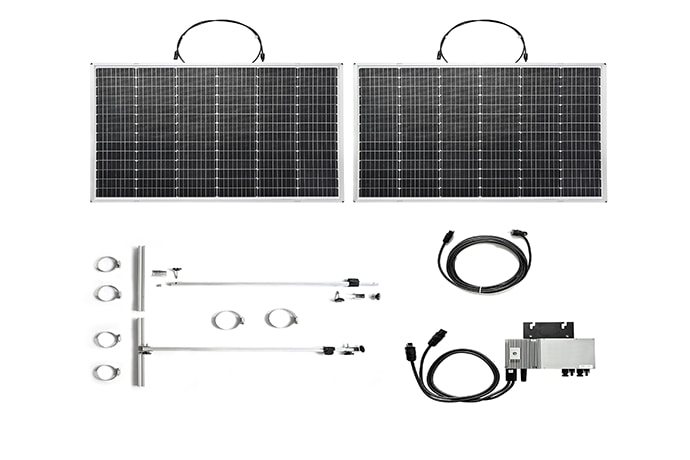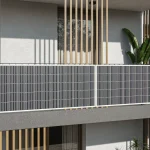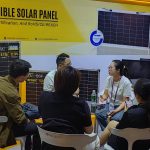Solar energy is an increasingly popular choice for homeowners and businesses looking to reduce their carbon footprint and save on energy costs. One convenient option for harnessing solar power is through solar panel kits.
Before investing in a solar panel kit, you need to know what you’re getting, how it comes together, and whether this solution makes sense for your electricity needs.
Read on to learn how a solar panel kit can work for you.
What is a Solar Kit?
A solar panel kit is a pre-packaged set of components that enable individuals to install a solar power system without the need for specialized knowledge or extensive technical expertise. These kits typically include solar panels, inverters, mounting hardware, wiring, and other necessary components for a complete installation.
How do Solar Kits Work?
Solar panel kits work by converting sunlight into electricity using photovoltaic (PV) cells. The solar panels in the kit absorb sunlight and generate direct current (DC) electricity. This electricity is then converted into alternating current (AC) power through an inverter, making it compatible with the electrical systems in homes or businesses.
Components of a Solar Panel Kit
A typical solar panel kit consists of several key components:
Solar Panels: These are the primary components that capture sunlight and convert it into electricity. The number of panels in a kit depends on the desired power output and available space for installation.
Inverter: The inverter converts the DC electricity generated by the solar panels into AC power that can be used to run household or business appliances.
Mounting Hardware: Solar panel kits often include mounting hardware such as brackets, rails, and clamps to securely install the panels on roofs or other surfaces.
Wiring and Connectors: These components facilitate the connection between the solar panels, inverter, and electrical system.
Monitoring System: Some kits may include a monitoring system that allows users to track the performance of their solar power system and monitor energy production.

Types of Solar Panels
Solar panel kits can feature different types of solar panels, including monocrystalline, polycrystalline, and thin-film panels. Monocrystalline panels are known for their high efficiency and sleek appearance. Polycrystalline panels are cost-effective and offer good performance in various conditions. Thin-film panels are lightweight and flexible, making them suitable for unconventional installations.
Is it Possible to Build Your Solar Panel Kit?
While it is technically possible to build your solar panel kit by purchasing individual components, it requires a deep understanding of solar power systems, electrical wiring, and the ability to ensure compatibility between the components. Building your kit can be time-consuming, and complex, and may not be cost-effective unless you have the necessary expertise.
Is There Value in a Solar Panel Kit?
Solar panel kits offer several advantages that make them a valuable option for many individuals:
Convenience: Solar panel kits come pre-packaged with all the necessary components, eliminating the need for extensive research and sourcing individual parts.
Cost Savings: Solar panel kits often offer cost savings compared to purchasing components separately. Kits are typically bundled at a discounted price, making them more affordable.
Ease of Installation: Kits are designed for ease of installation, with detailed instructions provided. This allows homeowners or DIY enthusiasts to install the system themselves, saving on installation costs.
Compatibility: Solar panel kits are carefully designed to ensure compatibility between components, reducing the risk of mismatched or incompatible parts.
Warranty and Support: Many solar panel kits come with manufacturer warranties and technical support, providing peace of mind and assistance in case of any issues or concerns.
Article from: https://www.sungoldsolar.com/
Your most sincere solar partner – Sungold







